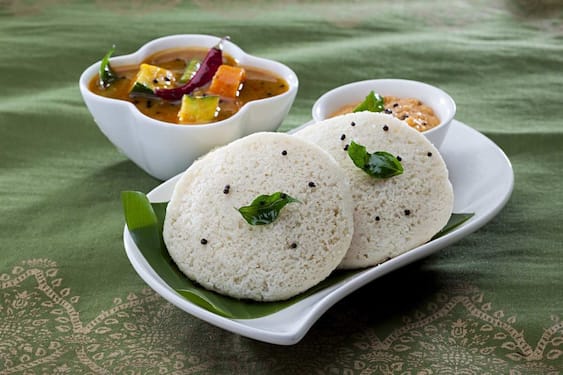Unveiling The Perfect 6-Step Idli Recipe For Diabetes Patients

Making idli suitable for diabetic patients involves focusing on ingredients and preparation methods that help manage blood sugar levels effectively.
Step 1-Choosing Ingredients.
- Idli Rice: Opt for parboiled or brown rice instead of regular white rice. Parboiled rice has a lower glycemic index (GI) compared to white rice, meaning it raises blood sugar levels more slowly.
- Urad Dal: Use whole urad dal (black gram) with the husk as it has a lower GI than split urad dal. The husk also adds fiber, which helps in managing blood sugar levels.
Step 2-Soaking.
- Soak the idli rice and urad dal separately in water for at least 4-6 hours or overnight. Soaking helps reduce the GI of the grains and aids in easier digestion.
Step 3-Grinding.
- Grind the soaked urad dal and idli rice separately using minimal water to achieve a smooth batter consistency. The batter should not be too thick or too thin.
Step4-Fermentation.
- Ferment the batter in a warm place for 8-12 hours or until it doubles in volume. Fermentation increases the nutritional value of idli and reduces its GI.
Step 5-Preparing the Idlis.
- Once fermented, gently mix the batter and add salt to taste.
- Grease the idli molds with a little oil or ghee.
- Pour the batter into the molds and steam cook the idlis for about 10-12 minutes or until done.
Step 6-Serving.
- Serve idlis hot with a side dish like sambar (made with plenty of vegetables and minimal oil) and coconut chutney (made with fresh coconut, green chilies, and minimal salt).
Considerations.
- Portion Control: While idlis made with these ingredients are healthier for diabetics, portion control is important. Stick to recommended serving sizes.
- Timing: It's preferable to consume idlis during breakfast or lunch when the body's metabolism is more active.
- Regular Monitoring: Diabetics should monitor their blood sugar levels regularly to adjust their diet and medication as needed.
